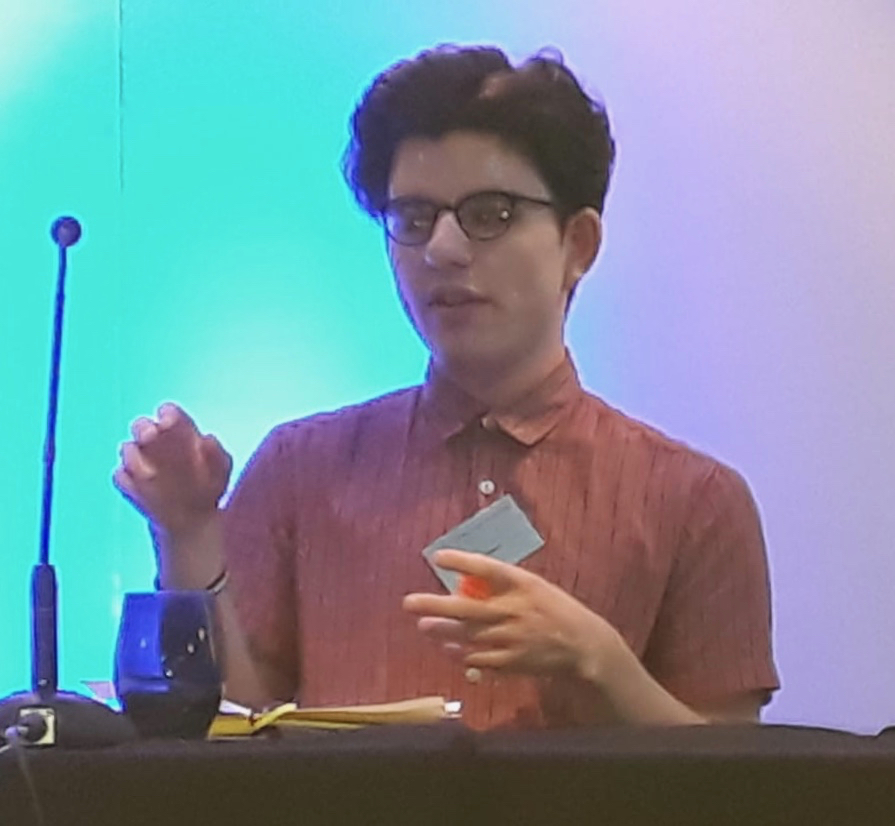New ADHD Support Groups
New Support Groups/Meet Ups
https://gaaps.weebly.com/
https://www.glasgowhelps.org/services/adhd-parent-support-group-meetings-and-peer-support
https://www.ayrshireadultadhd.com
Updates to the Glasgow Group
Scottish ADHD Coalition Update
Scottish ADHD Coalition Update
We want to thank everyone for their patience and continued support over the past 12 months. We acknowledge that the Scottish ADHD Coalition has not been active recently, and we sincerely apologise for any inconvenience or uncertainty this may have caused. The pause in our activates was due to some internal administrative challenges that we are pleased to announce have been resolved and you will now begin to see updates to our website and social media channels.
We remain deeply committed to our mission of supporting individuals with ADHD across Scotland and we are taking the necessary steps to strengthen our foundations so we can serve our community more effectively in the future.
Thank you for standing with us – we look forward to reconnecting and moving forward together soon.
Scottish ADHD Coalition Letter to CAMHS
Dear Sir/Madam
Decision to close the Neurodevelopmental assessment pathway
Decision to restrict assessment to ‘complex’ cases
As Chair of the Scottish ADHD Coalition, I am obliged to raise concerns on behalf of member and partner organisations with respect to the recent changes outlined above.
These fall into two distinct categories:
· The legality of the decision taken by NHS Tayside
· The clinical justifiability of the decisions taken by NHS Tayside
Legal concerns
Members and partners have raised with the coalition what appear to be significant flaws in the legal process surrounding the decisions above and, notable, what appears to have been:
- failure to consult those most likely to be affected by the decisions, including patients, patient’s families, third sector organisations involved in supporting individuals with ADHD, and local authorities who it is now being suggested will bear the burden of supporting young people with ADHD in the education system without the clinical expertise that was previously thought essential.
- The apparent lack of any credible impact assessment which we understand to be an obligation when public authorities make decisions of this nature. Members are particularly concerned that the absence of any formal diagnostic process will inevitably lead to an absence of treatment in cases where psychopharmacology is deemed to be the most appropriate option for what is a complex but treatable condition.
- The decisions taken appear to not only be discriminatory in that they affect most severely an already disadvantaged part of the population, but will inevitably lead to further subsequent discrimination in terms of educational/financial, economic, and health disadvantages.
- The decisions appear to conflict with Scottish Government policies regarding poverty reduction, substance misuse, educational attainment, suicide reduction, and young offending. If the Scottish Government supports these decisions, please indicate which departments have endorsed them given the known associations between ADHD and these risks.
- It is unlikely that the ‘self-identification’ of ADHD will provide a credible route to reasonable adjustments in the education system, workplace, or criminal justice system and this speculative suggestion has yet to be tested legally. Members are concerned that the decision was taken without consultation with those involved in these important functions.
- Given that until now, the diagnosis of ADHD could only be given by an appropriately qualified clinician, and by implication a null diagnosis likewise, the absence of a credible diagnostic pathway will inevitably create conflict between, for example, parents and school managers, if these parties disagree that ADHD may be a contributory factor
- when difficulties arise. Once again, there appears to be no legal precedent for determining the relative status of each party.
- The new criteria appear to represent a deviation from government endorsed evidence-based national guidelines (SIGN) which aim to minimise risk and maximise patient benefits. Thus it seems that NHS Tayside accept an increased risk of poor outcomes as a result of the proposed changes and that may impose a litigious responsibility on those who have decided to withdraw assessment and treatment.
- Clinical concerns
- Members have voiced concerns regarding the clinical coherence of the new position adopted by NHS Tayside and specifically:
- The decisions appear to conflict with national guidance (NICE, SIGN) and yet no clinical rationale for deviating from national guidance has thus far been given.
- The exclusivity of ‘complexity’ rather than ‘symptom severity’ when determining assessment and treatment priorities.
- The absence of any consideration of ‘symptom treatability’, current functional impairment, or improvement to ‘quality of life’ when assessments are prioritised.
- The denial of treatment to treatable patients experiencing serious functional and psychological impairment.
- The inevitable creation of a ‘two-tier’ health system whereby those who can afford private diagnosis and treatment will experience significantly superior long-term outcomes where those who are financially disadvantaged will not. This appears to conflict with the founding aims of the NHS and the stated aims of both the UK and Scottish Governments.
- The apparent absence of any consultation with the Royal College of Psychiatrists, Royal College of GPs, or any other national organisation representing the clinical professions. The decisions appear to be managerial rather than based on clinical advice, and appear to conflict with the functional aims of the NHS.
- Until the latest announcements, treatment was provided to those who CAMHS determined required it. If the assessment pathway is removed altogether, the position of NHS Tayside appears to be that individuals who require treatment will not get it.
- The absence of any impact assessment on this vulnerable population group raises serious concerns that those taking the decisions have failed to appreciate the multiple benefits of diagnosis and treatment or to permit the views of patients to inform decision making.
- There appears to be no empirical data to suggest that the removal of an assessment pathway and treatment options will lead to any net benefit to the patient population whereas multiple studies have indicated that the early identification and treatment of ADHD is essential in order to avert serious long-term outcomes.
The Scottish ADHD Coalition requests that NHS Tayside reviews its decision to restrict access to ADHD and other neurodevelopmental conditions for the reasons given above.
Yours sincerely,
Bill Colley
Chair of the Scottish ADHD Coalition
Lorna Redford
Trustee of the Scottish ADHD Coalition
Alison Zerouk
Treasurer of the Scottish ADHD Coalition
OFFICIAL STATEMENT BY THE SCOTTISH ADHD COALITION – Panorama documentary
OFFICIAL STATEMENT BY THE SCOTTISH ADHD COALITION
The Coalition recognises that the recent Panorama documentary has caused considerable concerns to many members of our community.
We congratulate the documentary team in bringing to the attention of the wider public the paucity of services within the NHS for the assessment, diagnosis, and treatment of this complex condition, and the fact that many who suffer from its impact are forced to seek private services.
We know also that highly qualified clinicians are as concerned as patients and that efforts are being made to persuade NHS managers that more needs to be done to modernise patient pathways for assessment, treatment, and post-diagnostic support.
We have concerns that the programme may have mis-represented both the motives of patients for seeking support and the quality of assessments offered by the private sector and believe that clinical professionals should be judged not by journalists but by their own regulatory bodies and according to the standards laid out in national practice guidelines.
ADHD in the adult population is vastly under-recognised and under-treated at a huge cost to the individuals concerned, their families, and to society as a whole.
Intelligent, well-informed debate about how to progress intervention and support is to be welcomed, but programme-makers should be aware of the unintentional consequences of making blanket statements about clinical services in either the public or private sectors and the potential damage that may be caused to innocent and well-motivated professionals who are driven to fill gaps in provision rather than seek to profit from failings elsewhere.
We urge the BBC to consider carefully in future how it chooses to portray the myriad of issues that ADHD raises, and to ensure that an appropriate balance has been struck in raising what may be justifiable concerns with the principles of journalistic integrity and natural justice to those affected.
Latest NHS Scotland ADHD prescribing data published
 NHS Scotland has published the latest data on ADHD prescribing in Scotland, for 2017 – 18. The headline figures show a further modest increase in prescribing for kids up to 19 years of age – with the proportion of school age kids on treatment now lying just above 1% (the NICE consensus on the prevalence of severe ADHD is 1.5%). There were 9400 kids on treatment across Scotland at the end of the year.
NHS Scotland has published the latest data on ADHD prescribing in Scotland, for 2017 – 18. The headline figures show a further modest increase in prescribing for kids up to 19 years of age – with the proportion of school age kids on treatment now lying just above 1% (the NICE consensus on the prevalence of severe ADHD is 1.5%). There were 9400 kids on treatment across Scotland at the end of the year. Coalition chair moderates Royal College of Psychiatrists CAMHS faculty debate
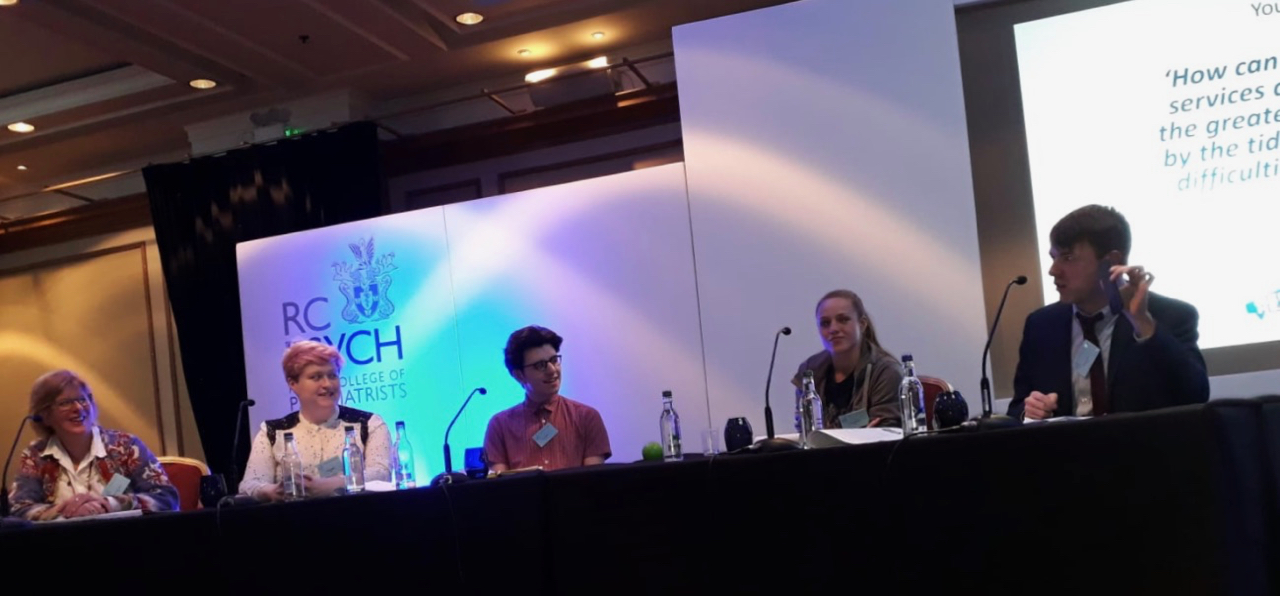 At last week’s Royal College of Psychiatrists CAMHS Faculty Conference held in Glasgow, Geraldine Mynors, Chair of the Scottish ADHD Coalition, chaired a ‘Harkness table’ debate. The participants were four young people with experience of Scotland’s mental health services:
At last week’s Royal College of Psychiatrists CAMHS Faculty Conference held in Glasgow, Geraldine Mynors, Chair of the Scottish ADHD Coalition, chaired a ‘Harkness table’ debate. The participants were four young people with experience of Scotland’s mental health services:
- Charlie MacKenzie-Nash, Volunteer Faculty Service User representative for the Royal College of Psychiatrists.
- Ross Pollard, a social researcher currently working with Adopt an Intern to help get people with disbilites into work
- Alex Lightbody, a student nurse
- Kareen Stewart, a care-experienced Ambassador on the Communities that Care project in Renfrewshire, for Who Cares Scotland.
The debaters chose and took on the challenging question:
‘How can we ensure that CAMHS services are available to those in the greatest need, and not flooded by the tidal wave of mental health difficulties experienced by young people today?’
The wide ranging debate was enthusiastically received by the audience of psychiatrists and other mental health professionals from across the UK. Some of the points where there was consensus were:
- The statistics on the increase in young people reporting mental ill-health and referrals to
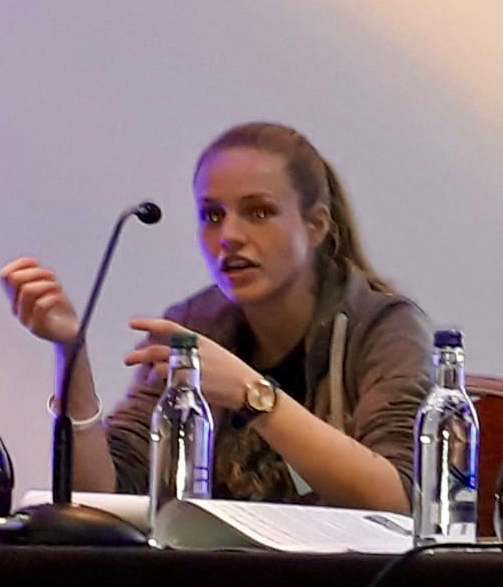 CAMHS speak for themselves – but it is unclear how much this is due to a welcome reduction in stigma about speaking out about it.
CAMHS speak for themselves – but it is unclear how much this is due to a welcome reduction in stigma about speaking out about it. - More work is needed to understand the role that social media and smartphone addiction have in exacerbating mental health problems – and how much these can also help. Austerity is also likely to
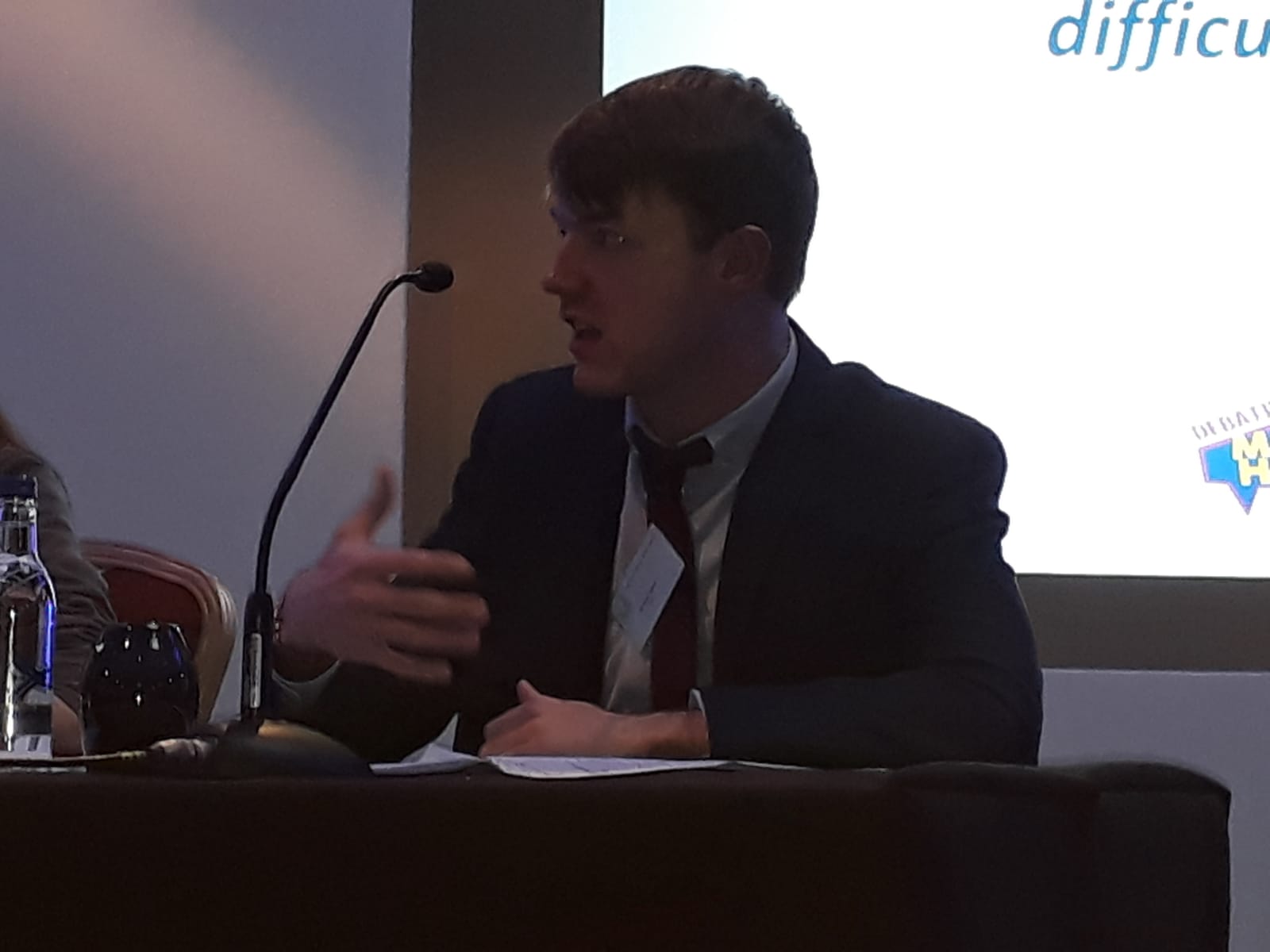 be linked to mental distress amongst young people.
be linked to mental distress amongst young people. - CAMHS services are under-resourced and clearly need more funding to prevent a much bigger bill in the adult mental health system and society at large.
- However, besides more resources, CAMHS services need to look at how they organise themselves and target their services. The criteria for accepting or rejecting referrals at the moment often seem arbitrary and need to be more rational – with more information about children referred gathered up front. Too many children have to repeat their story over and over again, and come up against staff who are ‘patronising’ and – in particular – seem to find it hard to relate to adolescents. Separate services for teens and young adults could help – possibly offering more group consultations and other age-appropriate interventions.
- Diagnoses and ‘labels’ can sometimes be profoundly unhelpful to young people and only add to their stress and anxiety.
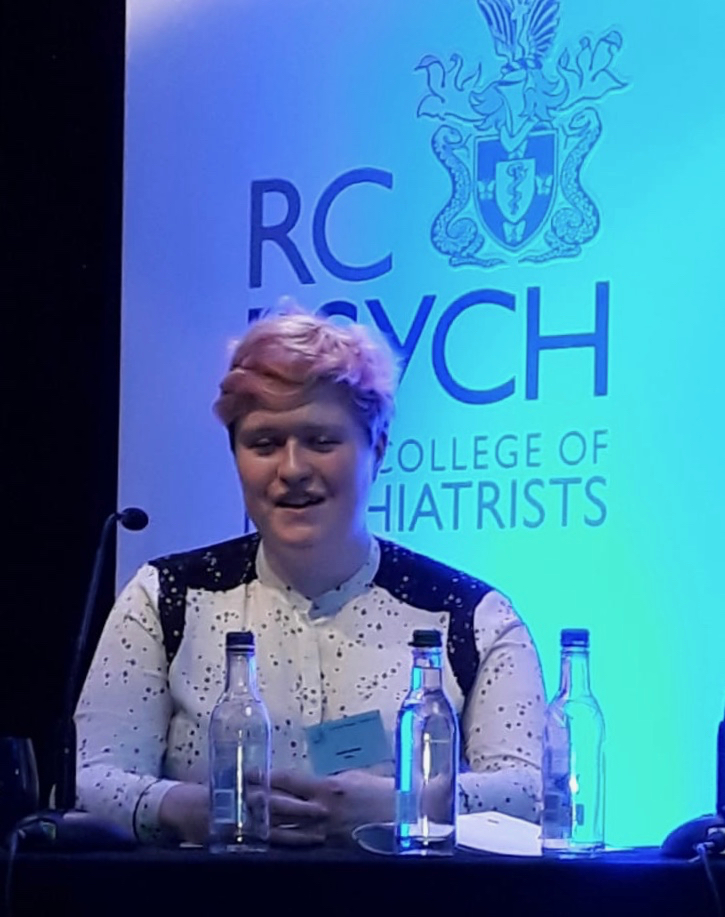 Words like ‘borderline personality disorder’ can carry real stigma. On the other hand, the young people with ADHD in the conference felt that a much earlier diagnosis would have helped them avoid other mental health problems down the line.
Words like ‘borderline personality disorder’ can carry real stigma. On the other hand, the young people with ADHD in the conference felt that a much earlier diagnosis would have helped them avoid other mental health problems down the line. - Mental health prevention needs a much greater emphasis – along with first line services which GPs can refer to (like school counsellors) before problems get out of hand. School is the place where most young people can be reached, but shouldn’t be the only setting for prevention work – youth workers and other youth activities play a huge role too.
The Scottish ADHD Coalition was proud to have been involved in this event, and impressed with the huge insight and courage shown by the young people involved in order to highlight the ways in which CAMHS services need to rise to today’s challenges.
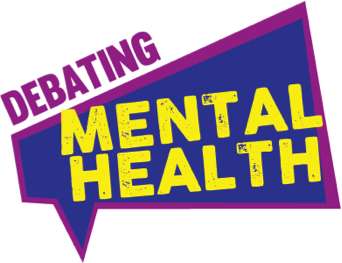 The debating team worked with Debating Mental Health to prepare for the debate. The Conference was chaired by Professor Helen Minnis of the University of Glasgow.
The debating team worked with Debating Mental Health to prepare for the debate. The Conference was chaired by Professor Helen Minnis of the University of Glasgow.
New data highlights increase in children’s antidepressant prescribing in Scotland
New data obtained by the BBC shows a concerning rise in antidepressant prescribing for children in Scotland. In this comment we highlight that undiagnosed ADHD and ASD can be one thing which gives rise to mental health problems in young people.
As well as treatment for anxiety and depression, much could be achieved if young people were able to engage more with the Outdoors, the arts, exercise and purpose – and if parents were better supported. All things we plan to work on in the future.
BBC Reporting Scotland news 24th July 2017
NHS Grampian Adult ADHD policy covered in press
The Press and Journal yesterday reported on the policy of NHS Grampian towards adult ADHD
Download the full article here.
Press and Journal article 5 6 18
UPDATE – 6th June 2018
Adults with ADHD in Scotland denied assessment
 If you have received a letter anything like this, please get in touch with us.
If you have received a letter anything like this, please get in touch with us.
ADHD is recognised by NICE, the World Health Organisation, the Scottish Intercollegiate Guidelines Network, the Royal College of Psychiatrists and the Scottish Government, and indeed improving services for ADHD was the subject of three recent parliamentary debates in Westminster and Holyrood.
Although symptoms must have been present before the age of 12 for a diagnosis, there is inevitably a huge number of adults with it who were not diagnosed in childhood when the condition was less well understood than it is now.
It is thought that around 2.5 – 4% of the adult population would benefit from treatment for ADHD(1), but NHS Scotland data shows that less than 1 in 1000 adults (0.1%) in Scotland were taking medication for ADHD in 2017.
There is undoubtedly a shortfall of adult psychiatrists with the time and expertise to manage demand, but turning people away at the door is not the answer.
We are on the case. Watch this space for updates.
- Faraone SV, Biederman J. What is the prevalence of adult ADHD? Results of a population screen of 966 adults. Journal of attention disorders. 2005;9(2):384-91.

